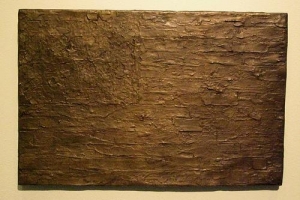|
Displaying items by tag: Lawsuit

Asher Edelman, the founder of the art finance company Art Assure, is suing Artmentum, a Swiss company that advises art sales and acquisitions, for breach of contract and fraud. Edelman, a former Wall Street shark who was the real-life inspiration for the character Gordon Gekko in the 1987 film, ‘Wall Street,’ filed a lawsuit along with eight other defendants, claiming that Artmentum tried to swindle Art Assure out of hundreds of millions of euros.
According to Edelman’s complaint, Artmentum offered him a large collection of masterworks, including pieces by Pablo Picasso, Edgar Degas, Henri Matisse and Claude Monet, said to be owned by Hiroshima Bank, which was described as being owned primarily by the Japanese government. Artmentum claimed that for confidentiality purposes, Art Assure would have to purchase the collection through them rather than from the Japanese government. The lot was being offered for the shockingly low price of 350 million euros with the intention of later re-selling the works to make a profit. According to Artmentum, they had arrived at the asking price after Sotheby’s offered the company 315 million euros for the collection. However, a letter of financial capability was never presented and the transaction failed to reach completion. According to the complaint, Sotheby’s had tried to circumvent Artmentum and acquire the works directly from Hiroshima Bank, but were told that the collection was not for sale.
While this raised some red flags, Art Assure and Artmentum had signed a binding memorandum that stated that the Swiss company had the exclusive right to sell the collection and that a number of third party buyers had signed on to purchase a portion of the works, while Art Assure would help finance the deal, quelling any concerns. According to the agreement, Art Assure would provide a formal letter of interest and confirmation of financial capability and then the two parties would enter into a working agreement that would lead to the introduction of prospective buyers. However, in order to transport the works from Japan to Switzerland, Art Assure was asked to deposit the full cost of the collection to a bank in Switzerland.
After Artmentum and Art Assure signed the memorandum, Artmentum failed to provide proof of its exclusive agreement to sell the works, never provided Art Assure with official authorizations related to the export of the collection, never initiated a working agreement related to the introduction of prospective buyers, and never permitted Art Assure to perform due diligence. In addition, although the signed agreement forbade Artmentum from entering into negotiations with other parties, the company allegedly approached another party, as well as Christie’s, with a letter proposing a similar offer as the one made to Art Assure.
Upon further investigation, Art Assure discovered that Hiroshima Bank did not own the collection, the works are not, in fact, for sale, and the Japanese government does not own a large stake in the bank, nor does it have the power to sell the collection. Edelman’s complaint claims that Artmentum never had the authority to sell the works and that the collection was never appraised by Sotheby’s. In addition, Art Assure discovered that no third parties had signed on to acquire the paintings from the company once the transaction was complete.
Art Assure is asking for $204 million in damages due to lost profits from the sale. The company also wants punitive damages, in an amount that will be determined by the court.

The American contemporary artist, Jasper Johns, testified in a Manhattan federal court on Thursday, January 23, saying that he never authorized foundry owner, Brian Ramnarine, to make a bronze copy of his Sculptmetal painting, ‘Flag.’ Johns had given Ramnarine a mold of the work in 1990 with instructions to make a single wax cast mold.
Prosecutors are trying to prove that Ramnarine, owner of the Empire Bronze Art Foundry in Long Island City, Queens, attempted to sell an unauthorized bronze sculpture of the painting in 2010. Johns stated in court that Ramnarine had never returned the original mold to him and that somebody later showed him a flag sculpture that he had never seen before, but he believed had been made from the mold in Ramnarine’s possession.
Ramnarine attempted to seek a buyer for the alleged Johns sculpture, telling interested parties that he was willing to sell the work for $11 million. Potential buyers were suspicious of Ramnarine as Johns had made only six ‘Flag’ sculptures and had kept several in his own possession (another is owned by the Art Institute of Chicago and another was given to President John F. Kennedy by the art dealer Leo Castelli). In an attempt to quell wariness, Ramnarine would provide interested parties with a letter said to be from Johns as well as a certificate of authenticity. Johns said he had nothing to do with either document.
Ramnarine has pleaded not guilty to the charges levelled against him.

Leone Meyer, the daughter of Raoul Meyer, a Jewish businessman who lived in Paris during the Nazi occupation, is suing Oklahoma University and its Fred Jones Jr. Museum of Art over Camille Pissarro’s painting ‘Shepherdess Bringing in Sheep.’ Meyer claims that the work, which resides in the museum’s collection, was stolen from her father by the Nazis.
Before Paris fell under Nazi control, Raoul Meyer assembled a large collection of French Impressionist works that were later seized during the occupation. After World War II ended, Raoul spent years trying to reassemble his comprehensive collection. In 1953, he sued Christoph Bernoulli, a Swiss art dealer and then-owner of the Pissarro painting. The case was dismissed due to a statute of limitations on such cases and ‘Shepherdess Bringing in Sheep’ eventually made its way to an art gallery in New York where it was purchased by the oil magnate, Aaron Weitzenhoffer and his wife, Clara. Following Clara’s death in 2000, the painting was donated to the Fred Jones Jr. Museum of Art. The Weitzenhoffers’ son claims that his parents were unaware of the painting's troubled provenance.
So far, the university has refused to return the work to Meyer, citing the previous court ruling in Switzerland.
A judge has ordered that a painting by Pierre-Auguste Renoir that was allegedly purchased at a flea market for $7 in 2009, be returned to the Baltimore Museum of Art. The museum filed papers in federal court last year arguing that the work legally belonged to the institution and had been stolen while on view there in 1951.
Martha Fuqua, who had purchased the painting at a Virginia flea market, claimed that she deserved to hold on to ‘On the Shore of the Seine’ (1879), a small landscape painting, because she was unaware that it had been stolen. The FBI seized the work in 2012 from an auction gallery. Fuqua had hoped to sell the unsigned work for as much as $100,000.
The Baltimore Museum of Art released a statement saying, “We look forward to celebrating the painting’s homecoming with a special installation in the galleries in late March.”
The New York Supreme Court has dismissed a lawsuit brought by the heirs of sculptor Alexander Calder against the estate of the artist’s longtime dealer, Klaus Perls. Justice Shirley Werner Kornreich said that “All these allegations are so patently inadequate that the court can only conclude that they were brought solely for the purpose of harassment or embarrassment.”
The original lawsuit was filed in 2010 and stated that for over three decades, Perls had carried out an elaborate scheme to collect millions of dollars from 15 unauthorized sales of works by Calder. The majority of the sales took place between 1976 and 1988, meaning that the statute of limitations for litigation had long expired, further weakening the heirs’ case. In addition, the Alexander Calder Foundation, which was established by the artist’s heirs in 1987, had been notified of seven of the sales.
Calder’s descendants were asking for $20 million to settle the case.
The New York Court of Appeals reversed a decision that could have forced auction houses to reveal the identities of consignors. The original ruling was made by the Appellate Division of the New York Supreme Court in 2012 and declared that state law required that buyers be allowed to know the names of sellers in post-auction paperwork in order for the sale to be considered official.
The ruling stems from a lawsuit filed against New York auctioneer William J. Jenack. After Jenack sold a Russian antique in 2008, the buyer refused to pay, claiming that the post-sale documentation had not identified the seller. The ruling on Tuesday, December 17, stated that Jenack had provided sufficient information to the buyer for the sale to be considered binding.

S.C. Johnson & Son, a global manufacturer of household cleaning supplies and other consumer chemicals, has filed a lawsuit against Sotheby’s. The lawsuit concerns a rare desk and chair from the Frank Lloyd Wright-designed S.C. Johnson & Son Administration Building in Racine, Wisconsin. The furniture, which was slated to be the highlight of the auction house’s upcoming 20th century design sale on December 18, exemplifies American Modernism.
According to a complaint filed in a New York federal court, S.C. Johnson claims that that the desk and chair are stolen goods. While the company does loan furniture and objects designed by Wright to museums, selling works is against their policy. The company’s statement went on to say that the removal of the desk and chair from the Administration Building was not authorized.
The sale’s catalogue lists the provenance of the desk as having been acquired by the chemist Elerslie E. Luther from S.C. Johnson during the early 1950s. The desk was alleged passed on by descent until it reached the current owner who acquired it from Jeffrey V. Luther. However, there is no evidence of a connection between Luther and S.C. Johnson in the company’s records. Similarly, the catalogue lists the chair as having been gifted by Samuel C. Johnson to a private collector in 1972. However, the bequest in inconsistent with S.C. Johnson’s records.
The desk is estimated to sell for $400,000 to $600,000 while the chair is expected to net $80,000 to $120,000.
An Israeli antiques dealer who was acquitted in a high-profile forgery case last year is suing the Israeli government for $3 million. Robert Deutsch is claiming that the trial tarnished his reputation and that he has lost a third of his business as a result.
Deutsch estimates that he has lost over $1 million in revenue since he was indicted in 2004. He has also paid $800,000 in legal fees. In addition to his financial woes, Deutsch was kicked out of his university doctoral program, removed from a university teaching job and banned from a major archaeological dig that he was involved with.
Deutsch is suing the Israel Antiquities Authority, its director Shuka Dorfman, the head of the organization’s anti-theft unit Amir Gamor, the Jerusalem District Attorney and Assistant District Attorney Dan Bahat.
Switzerland paid $1.6 million in legal fees despite winning a U.S. lawsuit over a drawing by Vincent van Gogh, which was donated by a businessman accused of exploiting the work’s former owner. The heir of Margaret Mauthner, a Jewish art collector who sold the drawing to Swiss businessman Oskar Reinhart in 1933 before fleeing Nazi Germany, brought the case against Switzerland in 2009.
The heir claimed that Reinhart, who gave the drawing Street in Saintes-Maries to Switzerland, had taken advantage of her grandmother’s unfortunate circumstance and forced her to sell the work for an unfair price. Switzerland maintained that Reinhart had paid a reasonable price for the drawing and ultimately won the case.
The work, which is valued at several million dollars, is currently on view in the Reinhart collection at the Winterthur Museum in northeastern Switzerland.

The founders of New York’s Dia Art Foundation are suing the organization and Sotheby’s to stop the auctioning of artworks they say were donated with the intention of keeping them readily available to the public. Heiner Friedrich and his ex-wife, Fariha Friedrich, who started the foundation in 1974 with art historian Helen Winkler, filed the suit in the state Supreme Court in Manhattan on November 7, 2013.
The sale, which is scheduled to take place at Sotheby’s on November 13 and 14, includes contemporary artworks by Barnett Newman, Cy Twombly and John Chamberlain – all of which the plantiffs claim were donated or loaned to Dia in the 1970s and 1980. The Friedrichs said in their complaint, “Dia’s proposed auction of the subject works would remove the works from public access and viewing in direct contravention of Dia’s entire intent and purpose and of plaintiffs’ arrangements and understandings with Dia.”
The Friederichs started Dia to help artists bring “visionary projects” to fruition and to make them available to the public. Heiner Friederich has not served on the foundation’s board since 1985; Fariha remains a trustee emeritus. They have asked for a temporary restraining order and preliminary injunction to stop the sale.
|
|
|
|
|